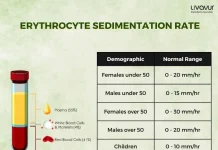
This article is reviewed by an expert
In most cases, ulcers affect the inner cheeks and inside of the lips, but they can also develop on the tongue. Also known as aphthous ulcers or canker sores, tongue ulcers are painful sores or open lesions that develop on the tongue. They are a common condition that can affect people of all ages. Tongue ulcers are typically round or oval in shape and have a whitish or yellowish appearance with a red border. They can occur singly or in clusters.
Tongue Ulcer Symptoms
The main symptoms of tongue ulcers include 1:
- Pain or discomfort when eating, drinking, or talking. The level of pain can vary depending on the size and location of the ulcer.
- The affected area of the tongue may feel sore or tender to the touch.
- Tongue ulcers can make it uncomfortable to consume certain foods and beverages, particularly those that are crisp, spicy, acidic, or hot in temperature.
- In some cases, the tongue or the surrounding area may become swollen.
- The area around the ulcer may appear red and inflamed.
- Tongue ulcers often have a white or yellowish coating or pseudomembrane covering the sore.
- Some individuals may experience a burning or tingling sensation before the appearance of an ulcer.
Tongue Ulcer Causes
The exact cause of tongue ulcers is not fully understood, but several factors can contribute to their development. Here are some potential tongue ulcer causes [1]:
- Accidental biting of the tongue, harsh brushing, or injuries from dental devices can trigger the formation of ulcers.
- Hormonal fluctuations, particularly in women during menstruation, can increase the likelihood of developing tongue ulcers.
- Certain foods, such as citrus fruits, chocolate, coffee, nuts, and spicy or acidic foods, can irritate the tongue and lead to ulcers in susceptible individuals.
- Deficiencies in iron, vitamin B12, zinc, or folic acid have been associated with an increased risk of developing tongue ulcers.
- Some immune system disorders, such as autoimmune diseases like Behçet’s disease or inflammatory bowel disease, can contribute to the development of tongue ulcers.
Tongue Ulcer Treatment

Most tongue ulcers heal on their own without medical intervention within one to two weeks. However, there are some steps you can take to alleviate symptoms and promote healing [2]:
Saltwater Rinses
Rinse your mouth with a solution of warm water and salt several times a day to help reduce inflammation and promote healing [3].
Avoid Irritating Foods
Stay away from spicy, acidic, or rough-textured foods that can further irritate the ulcer.
Maintain Good Oral Hygiene
Brush your teeth gently with a soft-bristled toothbrush and avoid aggressive brushing around the affected area.
Ice Or Numbing Agents
Sucking on ice chips or using over-the-counter oral numbing agents can help temporarily numb the area and provide relief.
Baking Soda
Dissolve a teaspoon of baking soda in about 100ml of water and use it as a mouth rinse. This is believed to help relieve inflammation and restore healthy pH balance [4].
Honey
A popular Ayurvedic remedy for tongue ulcers, honey is renowned for its antibacterial and anti-inflammatory properties. Research shows that honey can help reduce the severity of pain and ulcer size [5].
Oil Pulling
The traditional practice of oil pulling with coconut oil can also help relieve tongue ulcers because of its antimicrobial and anti-inflammatory effects [6].
Lavang Taila
Lavang taila or clove oil can be applied with a cotton swab over the affected area to promote healing. Its healing effects are linked to the presence of eugenol [7].
Conclusion
It’s important to note that tongue ulcers are generally harmless and tend to heal on their own within one to two weeks. However, if the ulcers persist for an extended period, are unusually large, or are accompanied by severe pain, it is advisable to seek medical attention for further evaluation and appropriate treatment.
FAQs
How long will it take a tongue ulcer to heal?
Usually, tongue ulcers resolve naturally within a few days, but can sometimes take a week a longer. Home treatments can provide relief and hasten healing.
Are tongue ulcers contagious?
Tongue ulcers are not caused by an infection and are therefore not contagious.
How do I know if it is a tongue ulcer or herpes cold sore?
Tongue ulcers are noncontagious and form on the tongue, whereas cold sores form outside the mouth and are contagious.
Can tongue ulcers be prevented?
If linked to a nutritional deficiency, supplements will help lower the risk. In other cases, foods like honey and yogurt may also offer some protection.
Disclaimer: The information provided here is for general information and not meant to substitute any medical advice. Please consult your doctor for appropriate medical consultation.
References:
- https://www.ncbi.nlm.nih.gov/books/NBK546250/
- https://www.ncbi.nlm.nih.gov/books/NBK546251/
- https://pubmed.ncbi.nlm.nih.gov/16943065/
- https://www.ijdr.in/article.asp?issn=0970-9290;year=2018;volume=29;issue=5;spage=672;epage=677;aulast=Madeswaran
- https://www.quintessence-publishing.com/deu/en/article/840773
- https://pubmed.ncbi.nlm.nih.gov/31665909/
- https://www.ncbi.nlm.nih.gov/pmc/articles/PMC3819475/
















